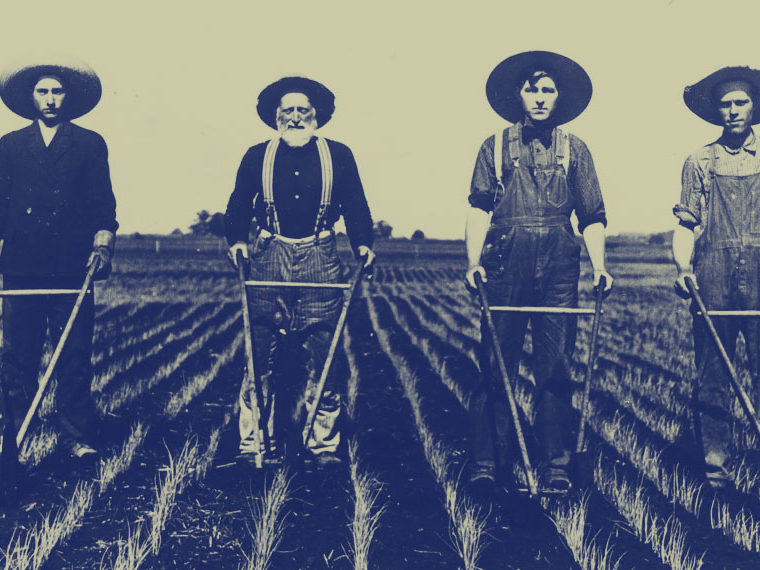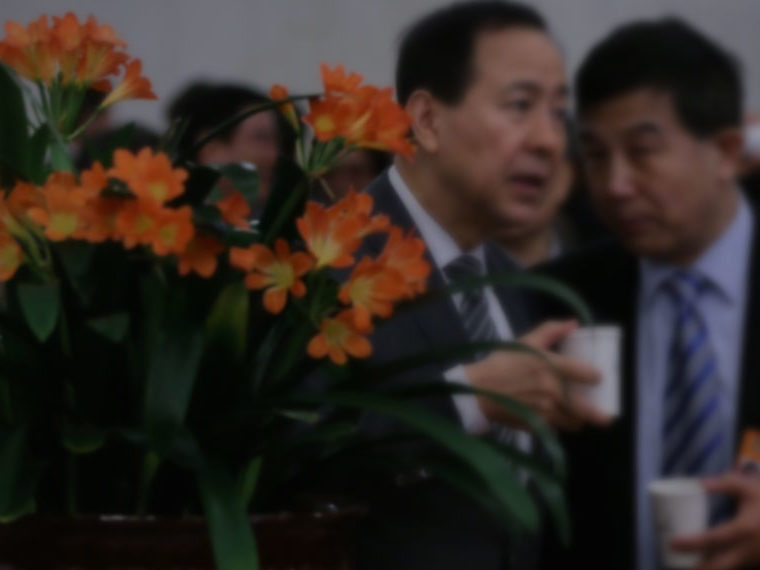Using voting records from a unique transition in the 19th-century Caribbean, Christian Dippel examines the embrace of self-interest by new legislators
It might seem in the U.S. today that money, as never before, has swamped elective politics. “Throw the bums out,” self-proclaimed insurgents from both parties exclaim — only to adopt rather quickly the self-preservation tactics of the former bums once they’re in office, aligning with those who finance their campaigns.
Might a wholesale re-staffing of a legislature break this cynical cycle? UC Irvine’s Jean-Paul Carvalho and UCLA Anderson’s Christian Dippel study this question both theoretically and empirically. They develop a theory that individual legislators have a “social identity” that dictates their social relations to the citizenry, as well as an “economic identity” that dictates their interest in preserving the policy status quo. The authors show how changes in the composition of the legislature change not only the overall policies getting passed, but also the behavior of the individual legislators. Individual legislators who have closer social ties to the citizens and less pronounced economic interests in existing policies may vote against those policies when they are in the majority. However, as the size of this “insurgent” bloc increases, they may change their behavior and “step up” (in the authors’ terminology) to keep the old status quo in place. The insurgents become the new establishment. The paper’s formal theory provides a dynamic analysis of this process.
The theoretical work is supplemented by a unique empirical case study: the abolition of slavery — and concomitant granting of voting rights to persons previously barred from voting — in 10 British Caribbean sugar-plantation islands in the 1830s provides Carvalho and Dippel with an environment in which to study such an abrupt turn in democracy’s difficult path.
Opt In to the Review Monthly Email Update.
Their working paper examines the islands of Jamaica, Dominica, Montserrat, Grenada, Barbados, Tobago, Antigua, St. Kitts, Nevis and St. Vincent. In 1838, the islands’ economic structure was entirely based on plantations and the population consisted of 2-to-3 percent whites, 8 percent “colored,” and almost 90 percent newly freed blacks granted the right to vote. This historical backdrop makes the “social and economic identity” of legislators uniquely meaningful in this context.
Carvahlo and Dippel wanted to see whether the introduction of an essentially all-new electorate to these islands would lead to legislatures that better served the populace. Or whether, once elected, these officials would adopt the “extractive policies” (the authors’ term for corruption and doing the bidding of one’s financial backers) of their predecessors.
At the time of emancipation, whites dominated the plantation economies. A system of patronage and wealth requirements to vote and run for office also allowed them to control more than 80 percent of the seats in seven of the 10 islands. The remaining legislators came from the “colored” class, which mostly comprised the mulatto descendants of white slave owners and slave mistresses. Some of them had substantial property holdings and enjoyed many of the same social privileges as whites, unlike the black slave population. The assemblies, which were in charge of providing public services, collecting taxes and setting budgets, controlled the political and economic lifeblood of the islands.
But after Britain abolished slavery throughout its empire in 1834, the islands’ newly empowered black citizenry began electing more colored legislators, including professionals such as lawyers or merchants in addition to plantation owners. The wealth and property requirements remained, likely accounting for the lack of elected blacks.
By 1860, those colored elites had made substantial progress, gaining a narrow majority in five assemblies, while whites retained majorities in three of the islands. Barbados was the only place where the colored population did not make substantial political gains after emancipation.
Using archival government records and other historical documents, Carvalho and Dippel established the social and economic identity of each individual elite member and examined the voting records of the elected colored elites who for various reasons were more likely to feel accountable to the largely non-white citizenry. Colored professionals, for example, were less tied to the plantation economy. And colored plantation owners did not benefit from a system of patronage and were more vulnerable to the violent uprisings that followed emancipation, since they could not count on the protection of the British Navy or the colonial police.
Yet these factors only marginally increased accountability. The authors’ examination of Jamaican voting rolls, for example, found that colored elites were on average about 10 percent less likely than white elites to side with white planters on so-called “extractive policies” that protected officials’ personal wealth. That included support for anti-squatting and vagrancy laws designed to depress wages and for tax policies favoring large landowners.
A closer examination of legislative records in Jamaica, Barbados and Grenada also revealed small differences in the way those non-white elites voted, based on how likely they were to benefit from the policies. Across the three islands, colored planters were only 2 to 3 percent less likely than white planters to vote for “extractive policies,” while colored merchants were 5 to 10 percent less likely to favor those policies.
On average, these findings suggest that “differences in voting are driven by differences in identity.” New elites, with closer social ties to the citizenry, were less supportive of the status quo, and this difference was more pronounced if they also had less economic interest in the status quo.
However, as the replacement of white planters with colored elites in the legislature picked up pace, the newcomers “stepped up” and ended up supporting the old policies to maintain their privileged status. This included voting to weaken and even dismantle democratic institutions so that those with wealth, regardless of color, would not be threatened by the populist upheavals.
The starkest example occurred between 1861 and 1877, when the legislatures in all but one of the islands voted themselves out of existence and invited the British monarch to reorganize them as appointed bodies under “crown rule.” The move was aimed at disempowering black voters.
Carvalho and Dippel’s findings suggest that having safeguards in place to prevent elected officials from undermining democratic institutions to protect their own self-interests is critical to building a government that is not just “of the people” and “by the people” but also “for the people.”
Featured Faculty
-
Christian Dippel
Assistant Professor of Economics
About the Research
Carvalho, J.P., & Dippel, C. (2018). Elite identity and political accountability: A tale of ten islands.






